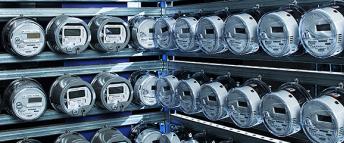With Time-of-use (TOU) prices, Regulated Price Plan (RPP) customers pay prices that generally reflect the relative value of electricity supply at different times of the day.
There are three Time-of-use periods – on-peak, mid-peak and off-peak. Prices are highest during on-peak, lower during mid-peak, and lowest during off-peak. Time-of-use prices encourage households and small businesses to use electricity during lower-cost time periods.
Time-of-use prices are set to be cheapest when demand is lower: during the evenings, on weekends, and on holidays. When demand is lower, most of the electricity we use comes from power sources such as nuclear generators and large hydroelectric stations. These sources, which are designed to run all of the time, are referred to as “baseload” power.
As daytime begins, more people and businesses turn on their lights, appliances, and devices. As the increased demand exhausts all available baseload power, the province turns to sources that generally cost more, such as natural gas-fired plants that can be called into action quickly to meet rising demand. Renewable sources, such as solar and wind, contribute to our supply needs when they are available.
Time-of-use price periods are different in the summer (May 1 – October 31) than they are in the winter (November 1 – April 30).
The Ontario Energy Board (OEB) determines Time-of-use rates at the same time as it sets tiered rates and Ultra-low overnight rates.
The Ontario Energy Board sets Regulated Price Plan prices based on its forecast of the cost to supply households and small businesses over the next 12 months. The Regulated Price Plan prices are set by the Ontario Energy Board on November 1 of each year.
Your electricity bill includes the costs for the electricity that you use (billed at Time-of-use rates), the services your local utility provides, and other costs of delivering electricity. Other charges may also appear on your bill related to your account.
Effective November 1, 2025, Time-of-use customers are charged:
| TOU Price Periods | Winter (Nov. 1 to April 30) | Summer (May 1 - Oct. 31) | TOU Prices |
|---|---|---|---|
| Off-Peak | Weekdays 7 p.m. to 7 a.m. Weekends and holidays all day | Weekdays 7 p.m. to 7 a.m. Weekends and holidays all day | 9.8 ¢/kWh |
| Mid-Peak | Weekdays 11 a.m. to 5 p.m. | Weekdays 7 a.m. to 11 a.m. and 5 p.m. to 7 p.m. | 15.7 ¢/kWh |
| On-Peak | Weekdays 7 a.m. to 11 a.m. and 5 p.m. to 7 p.m. | Weekdays 11 a.m. to 5 p.m. | 20.3 ¢/kWh |
Weekends and Holidays
No matter which season, on weekends and holidays, the cheapest rates are in effect all day. View the Holiday Schedule for Time-of-use and Ultra-low overnight.
This means:
- For TOU - Off-Peak
- For ULO - Weekend Off-Peak and Ultra-low overnight
Note: If a holiday falls on a weekend, the next weekday (that is not also a holiday) will have the holiday prices in effect all day.
Easter Monday is not a holiday recognized by the OEB for the purposes of calculating electricity consumption at off-peak pricing, and therefore regular Time-of-Use prices apply on this day.
